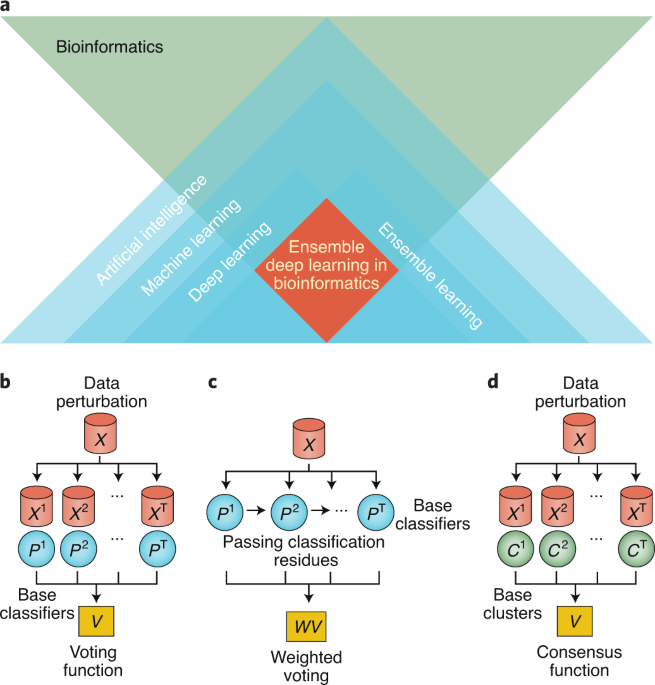Bioinformatics Tutor for Dummies
Bioinformatics Tutor for Dummies
Blog Article
The Facts About Bioinformatics Tutor Uncovered
Table of ContentsGetting My Bioinformatics Tutor To WorkBioinformatics Tutor - TruthsRumored Buzz on Bioinformatics TutorOur Bioinformatics Tutor PDFsThe 6-Second Trick For Bioinformatics Tutor
Initial task development is relatively taxing, as it includes mindful planning of the subject, structuring of deliverables, and consideration of the abilities and experience degrees of participants. Once a project has been clearly specified and applied, it has the potential to be reused in future sessions with only small revisions to reflect updates in the field or fit differences in individual histories. This makes project-based finding out a efficient and sustainable mentor technique in the lengthy run, especially in quickly progressing self-controls like bioinformatics.To make certain connection and reproducibility of knowing, giving common laboratory note pads-- either physical or electronic-- is crucial. These notebooks work as collective logs where trainees can tape their progression, code, techniques, and results throughout the training course. Not just do they reinforce knowing by encouraging paperwork and representation, however they likewise function as post-course reference products that individuals can seek advice from in future study or scholastic projects.
Advisors play an important role in the success of project-based training courses. Preferably, advisors need to be energetic researchers with a extensive and up-to-date understanding of both the academic structures and useful applications of bioinformatics in their respective techniques. Their capacity to bridge complicated concepts and real-world execution is important in assisting students browse the difficulties of interdisciplinary research. Moreover, coaches also act as duty designs and inspire pupils to continue pursuing jobs in computational biology and associated areas.
Excitement About Bioinformatics Tutor
An additional trick facet of the knowing process is supplying individuals the possibility to present their work to others, specifically to a target market beyond their immediate project group. Final presentations or mini-conferences enable pupils to verbalize their findings, receive constructive feedback, and gain confidence in interacting clinical web content. This discussion part is often a favored amongst pupils, as it validates their initiatives and highlights the real-world relevance of their job.
Each iteration of the program was fine-tuned based on participant responses and progressing finest practices in rearing. Bioinformatics Tutor. These adaptations ensured that the core purposes-- hands-on discovering, partnership, and applied analytic-- continued to be undamaged while expanding the deepness and breadth of topics covered.
A remarkable visualization that captured participant sentiment was a word cloud produced from reactions to the 2014 end-of-course study. This aesthetic comments strengthened the program's focus on experiential discovering and advisor assistance.
The contributions of individuals such as Rustici, G., Orchard, S., Cowley, A., and Twells, R., along with other participants of the EBI user-training-working group, were critical in improving the training course framework and content. Their understandings helped shape a adaptable and inclusive design that could be adjusted to different institutional and regional contexts.
The Facts About Bioinformatics Tutor Revealed
Jones, Rasmussen, and Moffitt (1997) also advocated for interdisciplinary discovering with collective task work, noting its capability to imitate specialist settings and prepare trainees for future scholastic or sector functions. In a detailed review, Thomas (2000) examined several research studies on PBL and ended that trainees not only perform well academically but also establish a deeper understanding of the subject matter and boosted team effort abilities.
In the context of bioinformatics education, ingenious techniques like classroom video games and simulation-based training have likewise been used. Schneider and Jimenez (2013) presented the usage of interactive games to show biological information integration, enabling pupils to realize complicated ideas through experiential learning. This type of gamification matches the hands-on discovering stressed in project-based training courses by introducing a component of enjoyable and competitors, which can further improve interaction.
Going back to the program talked about right here, the lessons learned from the application of project-based learning in a bioinformatics establishing have more comprehensive implications for other STEM fields. The approach emphasizes not just technological proficiency, but likewise interaction, collaboration, and essential thinking-- skills that are increasingly valued in both academic community and market.
Examine This Report on Bioinformatics Tutor
The scalability of the training course style likewise makes it a practical design for various other institutions. With proper personalization based upon local needs, offered sources, and participant profiles, the framework can be duplicated or adapted for usage in other click site clinical domain names. Additionally, the addition of structured mentorship and assessment strategies helps make certain consistent quality and measurable understanding end results.

Finally, project-based discovering in bioinformatics provides an effective technique to mentor complicated, interdisciplinary content in such a way that is both easily accessible and intellectually stimulating. By stressing cooperation, practical application, and essential query, such initiatives not only improve individual knowing yet likewise contribute to the farming of a brand-new generation of knowledgeable and innovative researchers.
Some Ideas on Bioinformatics Tutor You Need To Know

An additional secret facet of the knowing procedure is supplying individuals the possibility to provide their job to others, particularly to a target market beyond their immediate job team.In the more comprehensive academic literature, project-based learning (PBL) has been thoroughly examined and confirmed as a reliable technique for promoting deep understanding, important reasoning, and transferable abilities. Adderley et al. (1975) emphasized the worth of job methods in greater education and learning, keeping in mind that they advertise energetic understanding and autonomy. Schneider and Jimenez (2013) introduced the use of interactive games to show organic data assimilation, making it possible for trainees to comprehend intricate ideas via experiential learning.
Report this page